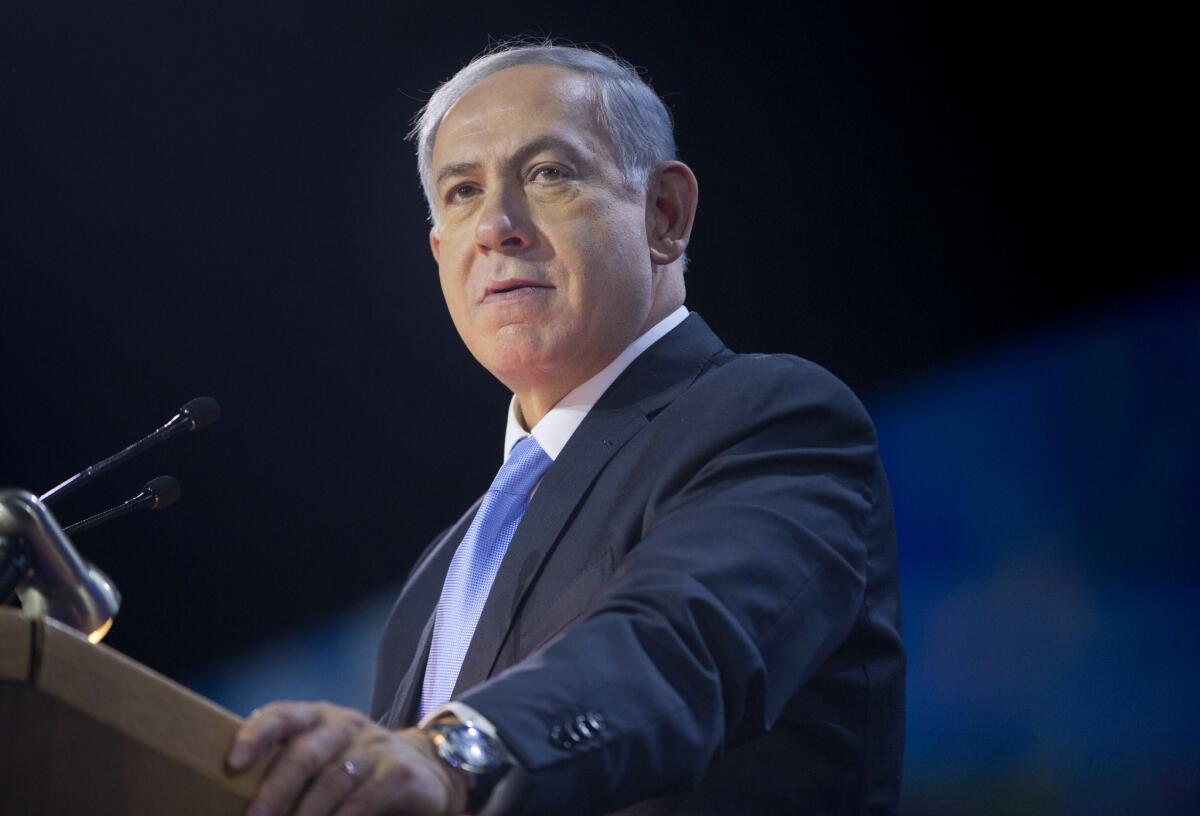Editorial: Annexing the West Bank would only undermine Israel’s security

After a chorus of criticism, Prime Minister Benjamin Netanyahu has postponed his plan to have Israel annex significant parts of the West Bank, which Palestinians see as the heart of their long-desired independent state. But Netanyahu should drop the idea altogether.
The prime minister had indicated he might move as early as this week to propose annexation of parts of the West Bank, including the sites of Jewish settlements and the Jordan Valley.
Israel captured the West Bank in the 1967 Middle East War, along with East Jerusalem, the Gaza Strip, the Golan Heights and parts of the Sinai Peninsula (the latter of which were later returned to Egypt as part of a peace agreement). But by week’s end aides said Israeli officials were still working out details in consultation with U.S. officials. (Last week Secretary of State Michael R. Pompeo said that extending Israeli sovereignty was a decision “for Israelis to make,” but there are indications that the White House might favor a more gradual process in which Israel would initially declare sovereignty over settlements close to Jerusalem.)
The rationale for the occupation of the West Bank would be to protect Israel from attack. But many Israelis settled in the West Bank for religious, nationalistic or economic reasons. (In any case, Israel signed a peace treaty with Jordan in 1994.) As settlements multiplied, the path to the so-called two-state solution — in which Israel and a viable Palestinian state would exist side by side — has become increasingly difficult.
The annexation Netanyahu is contemplating would render an already challenging quest for peace all but impossible. That is the view not only of Palestinians and Israel’s Arab neighbors (some of which have reached out to the Jewish state in recent years) but also of many Israelis and Israel’s well-wishers around the world.
Robert Satloff, the executive director of the Washington Institute for Near East Policy, a think tank considered friendly to Israel, wrote in the Washington Post last week that unilateral annexation would be a “radical departure” that could lead to a cascade of dangerous developments. They could include the collapse of the Palestinian Authority (which for all its faults has cooperated in the past with Israel in maintaining security); a third Palestinian intifada, along the lines of those in 1987-1993 and 2000-2005; the suspension of the peace treaty with Jordan; and a rupture in diplomatic relations with Israel’s allies.
In January, the Trump administration unveiled a stillborn peace plan, fashioned by a team including the president’s son-in-law, Jared Kushner, that largely sided with Israel. The plan contemplated a Palestinian state, but one that would be fragmented into noncontiguous parcels on the West Bank, with Israel controlling significant parts of the area. President Trump’s proposal may have emboldened Netanyahu to believe that he could annex large parts of the West Bank with U.S. support or acquiescence.
Last week a large majority of House Democrats signed a letter to the Israeli government calling on it to shelve annexation plans and negotiate with the Palestinians. The letter, which reaffirmed the importance of the U.S.-Israel relationship, expressed concern that “unilateral actions, taken by either side, will push the parties further from negotiations and the possibility of a final, negotiated agreement.” Former Vice President Joe Biden, the prospective Democratic presidential nominee, also has come out against annexation.
America’s allies oppose annexation. The European Union has called Israeli settlements on occupied territory a violation of international law. This week British Prime Minister Boris Johnson urged Israel not to proceed with annexation, saying it would be “a gift to those who want to perpetuate the old stories about Israel.” In meetings with ambassadors from Israel and the United States on Tuesday, the Vatican’s secretary of state expressed concern about “possible unilateral actions that may further jeopardize the search for peace between Israelis and Palestinians.”
Israel doesn’t bear sole responsibility for the lack of a peace agreement more than half a century after the Middle East War and more than two decades after the Oslo accords that many hoped would lead to a permanent resolution of the Israeli-Palestinian conflict. Palestinian Authority President Mahmoud Abbas has proved a vacillating and ineffectual leader, and the Palestinian Authority lost influence when the militant group Hamas seized control of the Gaza Strip in 2007.
Nor is Israel wrong to insist on the safety of its citizens as part of any agreement. Israelis have a right to live in peace, just as Palestinians have a right to statehood. But a reckless annexation would make Israelis less, not more, secure, while depriving Palestinians of the independent state they deserve. Netanyahu must stay his hand.
More to Read
A cure for the common opinion
Get thought-provoking perspectives with our weekly newsletter.
You may occasionally receive promotional content from the Los Angeles Times.










